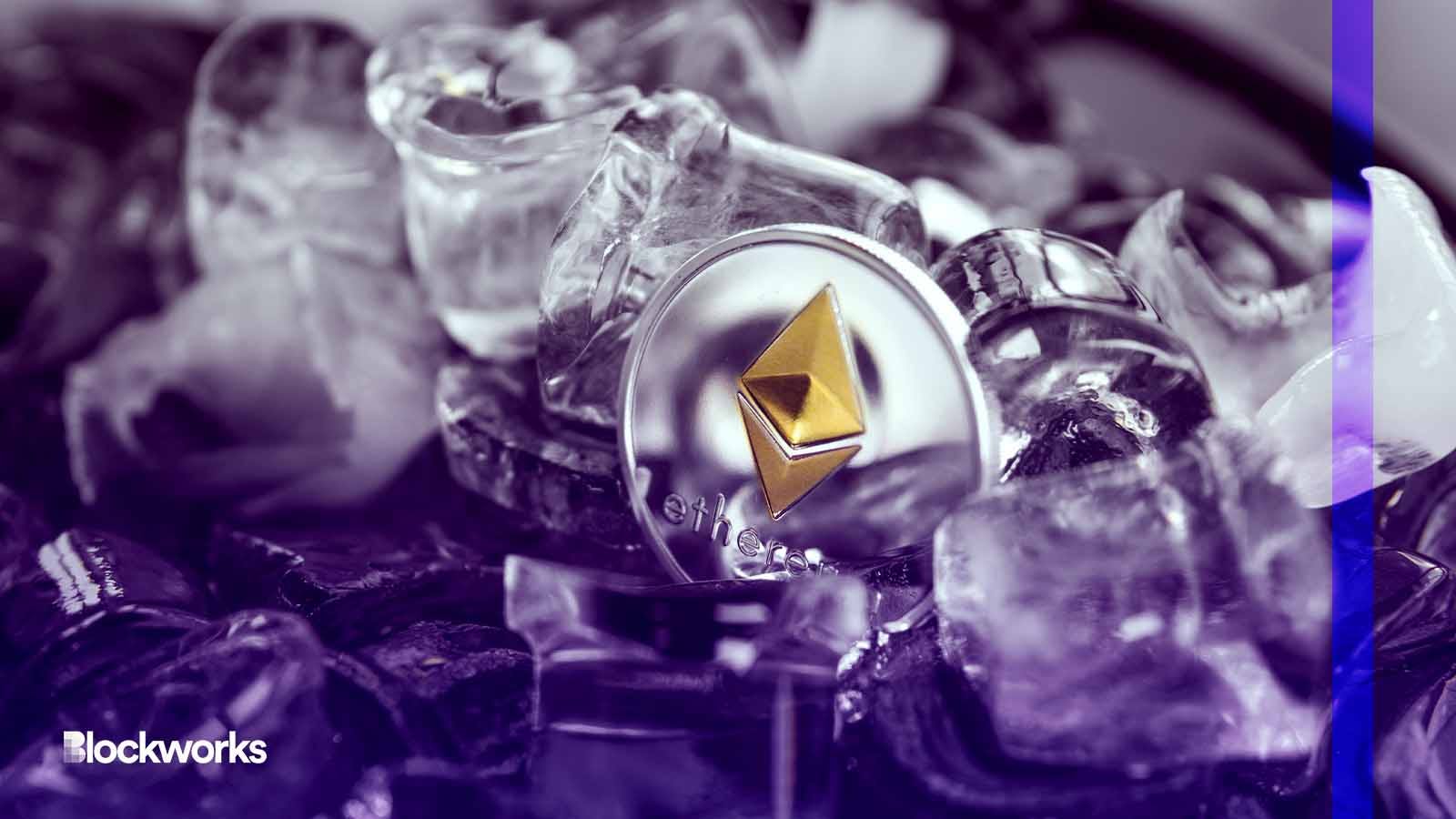Ethereum transactions frozen for 12 seconds
The 12-second ‘censorship’ proof of concept sparked discussions on one of Ethereum’s core principles

Volodymyr_Shtun/Shutterstock modified by Blockworks
A recently organized team of researchers, the Special Mechanisms Group (SMG), demonstrated Thursday how to take advantage of a facet of the proposer-builder separation market to force through an Ethereum block containing just one transaction: theirs.
Proposer-builder separation (PBS) is intended to increase censorship-resistance by separating the roles of block builders and block proposers in the more-or-less unceasing Ethereum blockchain. But the group found a way to use the feature to make a very public point.
The block’s lone transaction embedded a URL to a presentation and research paper on SMG’s website, describing the problem and proposing potential ways to address it.
Reactions were decidedly mixed.
Ryan Berckmans, a former software engineer at Augur, was among many who pointed out that Ethereum’s gas fee market would make it difficult to delay transactions using this method for long, but noted it did reveal certain problems in the way some applications on Ethereum calculate fees needed to get transactions included in a block.
“The interesting thing about the quoted method is that to censor all transactions for one block, they only have to outbid priority fees.”
Why does it matter?
Ethereum is designed to be “credibly neutral,” and therefore any time user transactions can be prevented from being included in a block, it’s cause for alarm.
(Technically, post-Merge they’re called “slots,” but the terms are interchangeable.)
But most people conceptualize “censorship” as preventing a transaction permanently, not merely delaying it for a short time. It’s also not a new problem.
The SMG group disagrees.
“When bidders in an auction, or agents in a financial system can censor their competition, the efficiency of these systems erodes,” they tweeted. “In other words, censorship-resistance is about more than just ensuring a transaction gets on-chain ‘eventually.’ It needs to be fast.”
SMG’s head of research and one of the paper’s authors, Max Resnick, told Blockworks, “we are more worried about 12 seconds being enough time to cause a problem than 10 mins,” although he said the critics overestimate the cost of increasing the delay period further.
Even on a short timeframe, however, “there are a lot of useful mechanisms (like auctions) that we can’t build on chain because it would be easy for participants to censor their competition’s bids,” Resnick said.
Some use cases that don’t tolerate inclusion delays could migrate to layer-2s, but not all, he said.
“Let’s use enshrined PBS as an example, because that is an auction that we want to run on-chain and can’t really be run on a rollup.”
Enshrined PBS, or ePBS, would implement PBS at the protocol level — the Ethereum mainnet consensus layer — but how to do this is an active research topic and remains a relatively distant prospect.
“This is particularly relevant in auctions, but also applies to fraud proofs and oracle updates to a lesser extent,” Resnick said.
In other words, this case implies that it may be hard to reduce the window for producing a fraud proof in optimistic rollups, although it does not impact ZK rollups.
“I think if we could make the base chain more censorship resistant, then optimistic rollups would have better user experience,” Resnick said.
Get the news in your inbox. Explore Blockworks newsletters:
- The Breakdown: Decoding crypto and the markets. Daily.
- 0xResearch: Alpha in your inbox. Think like an analyst.






